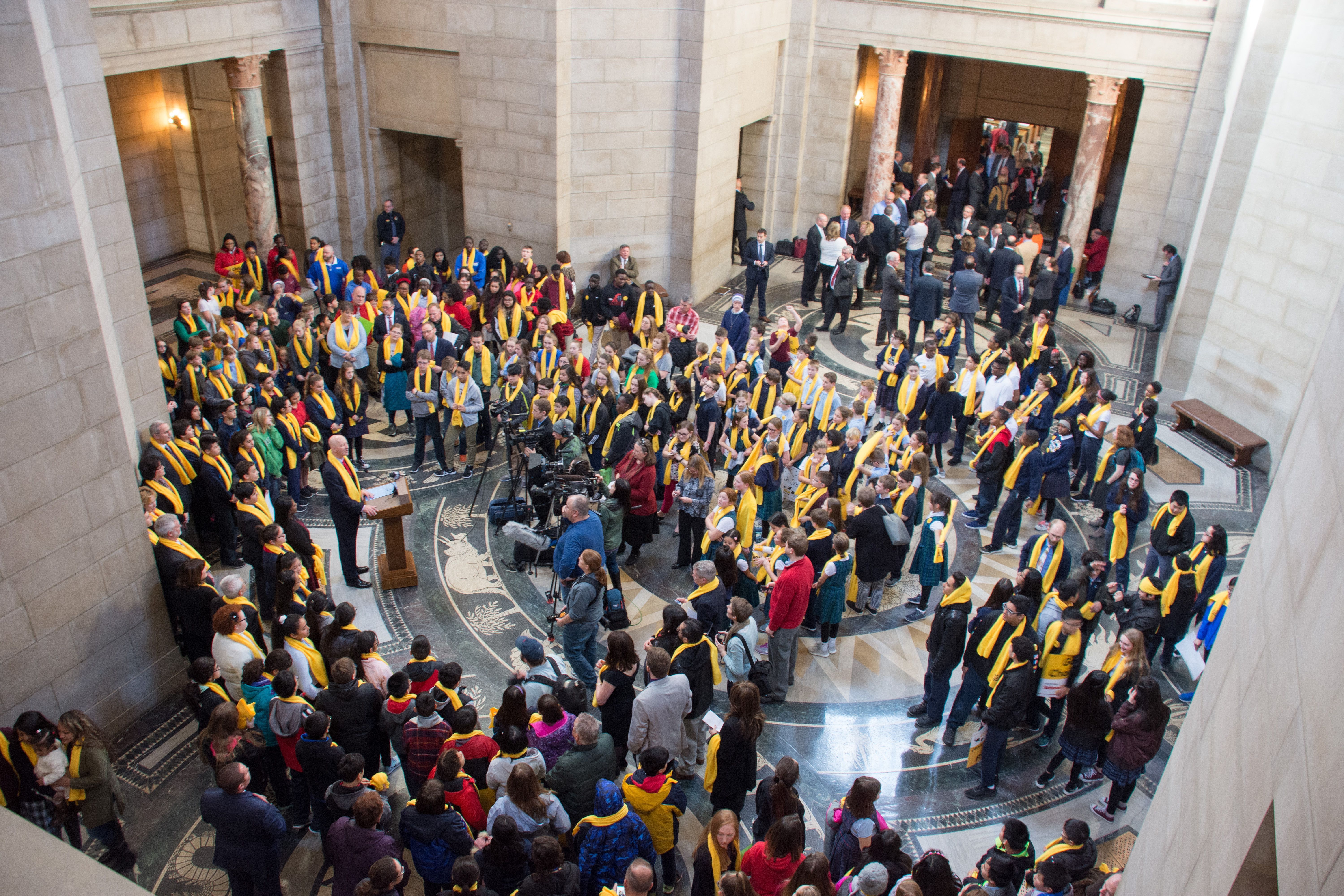Have you ever been in an argument with somebody, only to find out that you don’t disagree about the moral principles that are important to each of you, but that you are disagreeing about how the moral principles apply to a certain situation? I know I have—and I bet you have, too.
Catholic social teaching is beautiful. It provides a framework for how to think clearly, truly, and consistently about the world and the many social, political, and cultural issues we face. The Church—through the gift of God’s revelation—provides us thousands of years of wisdom on the human experience and how we can remain true to God’s vision for building the Kingdom on earth as it is in Heaven.
Through Catholic social teaching, we recognize the fundamental moral principles required of building a just society, one that respects human dignity, honors subsidiarity, fosters solidarity, and seeks the common good.
But the fundamental moral principles must be applied to real-life factual situations to make a moral judgment on whether a certain action is ultimately morally good or morally evil.
How easy or difficult this is depends on the moral principle and the fact pattern.
For example, it is a moral evil to directly take the life of an innocent human being. This is why it’s easier to make a moral judgment on acts like abortion and euthanasia.
But moral judgments are not always so easy, because certain fact patterns make the application of the moral principle more complex. This doesn’t mean the moral principle is confusing or less important. It simply means that understanding how the moral principle applies to a fact pattern requires a more complex analysis.
For example, immigration comes to mind. Catholic social teaching proposes some key principles that should guide us. First, persons have the right to find opportunities in their homeland. Second, persons have the right to migrate and support themselves and their families. Third, sovereign nations have the right to control their borders and to ensure the peaceful and orderly integration of new populations into their countries. Fourth, refugees and asylum seekers—people whose lives and physical safety are at risk—should be afforded protection. Fifth, the human dignity and human rights of undocumented migrants should be respected.
Immigration debates usually center on the application of principle number two and principle number three. What does it mean for people to have a right to migrate? What kind of system would be a morally just system that provides sufficient opportunity for persons to migrate and successfully integrate their families in the United States? What does it look like for a sovereign nation to control its borders? What kind of immigration enforcement actions are just and what kinds of actions are unjust?
To arrive at a conclusion on these questions requires having a good grasp on the facts. Without the facts, you cannot apply a moral principle to anything to determine if a proposed action or policy position is morally just or unjust.
But it’s also important to recognize that sometimes two people who completely agree on the moral principles might look at the same set of facts and disagree about how they are to be interpreted. For example, one person may consider a certain form of arrest, detention, and deportation of certain undocumented, criminal migrants as unjust, while another looks at that same situation and concludes the action is just.
The same goes, for example, with addressing poverty. We know that we have a fundamental obligation to care for the poor. However, there might be disagreement between two people who sincerely care for the poor, about the best way to serve them. Maybe they arrive at differing conclusions because they rely on different sets of data about what best helps the poor. Or maybe they rely on the same sets of data but differ as to how that data is to be interpreted. Or maybe they have differing life experiences or philosophies about successfully helping the poor.
What’s my point in all of this? Am I trying to say that we can never arrive at what is morally good or morally bad? Absolutely not.
We can and we absolutely should make moral judgments—we must take the moral principles the Church gives us and apply them to the situations in our lives. And we must be humble enough in this venture to be led by and arrive at the Truth.
What I am ultimately saying is that, oftentimes for us as Catholics following the teachings of the Church, we must remember that our disagreements are not necessarily about the principles. They are rather about how we understand the facts in front of us, and how we judge the moral principles to apply to them. The more complex the facts are, the more difficult the application of principles will be. What ought to be done in such situations is not always clear—it is part of our fallen nature that “now we see in a mirror dimly,” as St. Paul says, and not with perfect clarity. We must do the best we can to judge rightly where faithful people of good will may disagree.
When we find ourselves in these situations, we must remain especially charitable as we all seek the Truth that is required of those desiring to build a more just society. As Pope Saint John XXIII stated: “in essentials, unity; in doubtful matters, liberty; but in all things, charity.”

